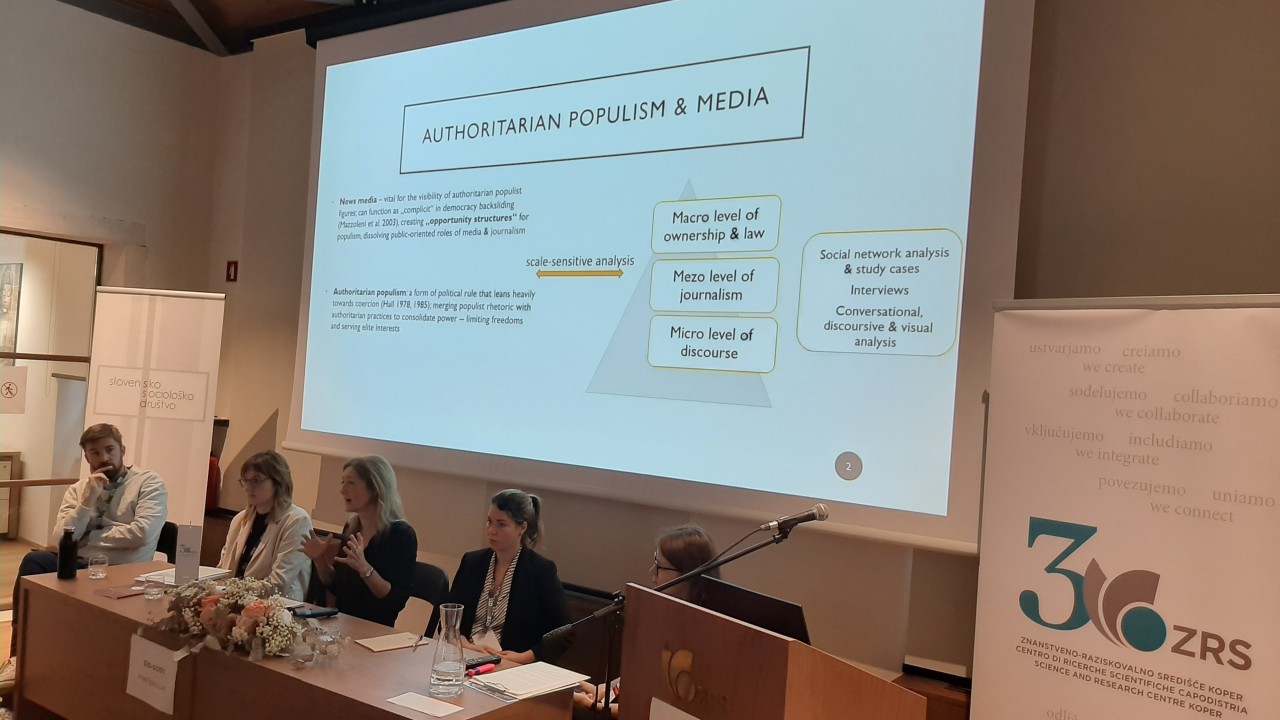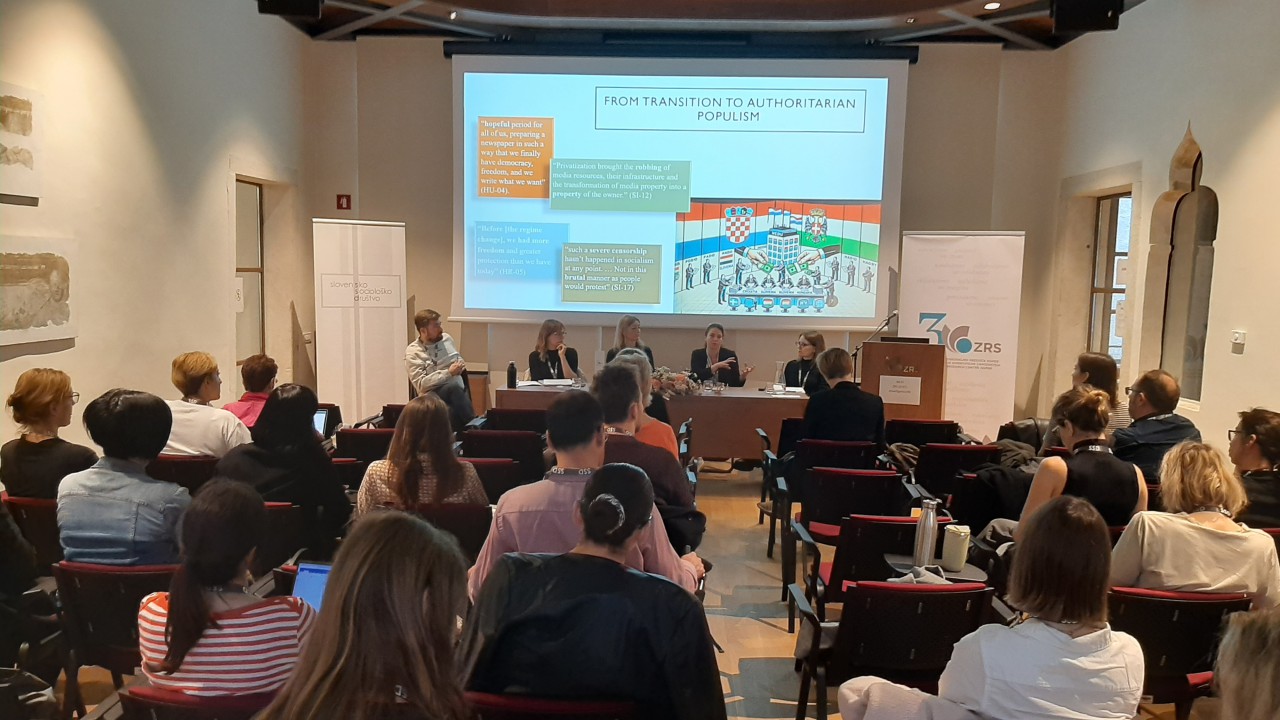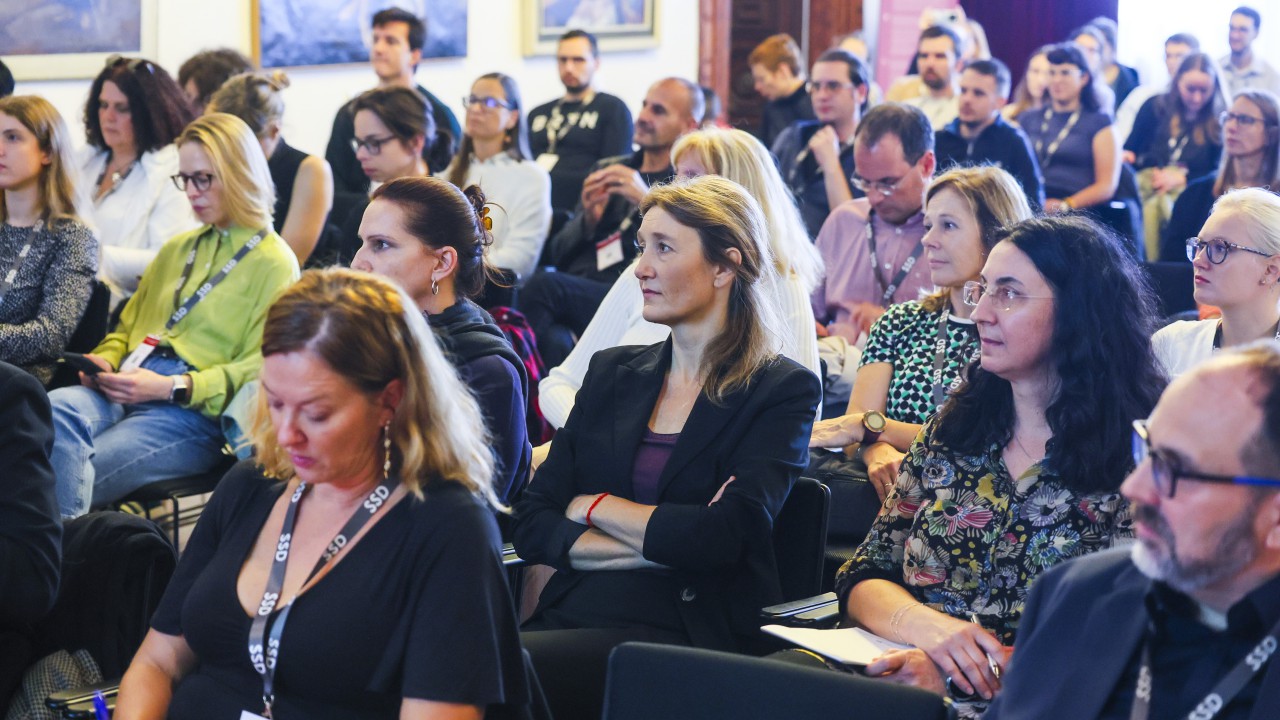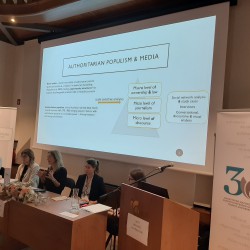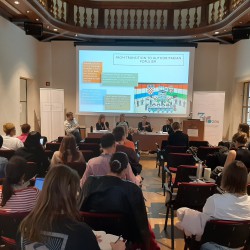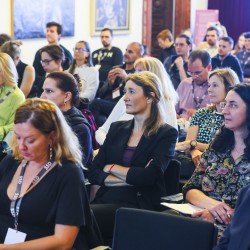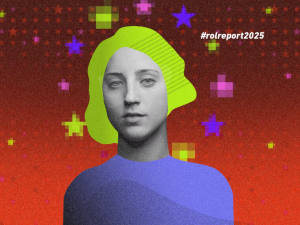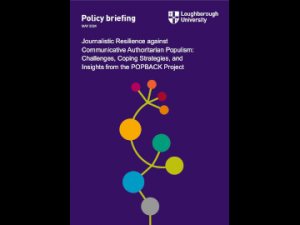Authoritarian populism and media
22. 10. 2024 | Media
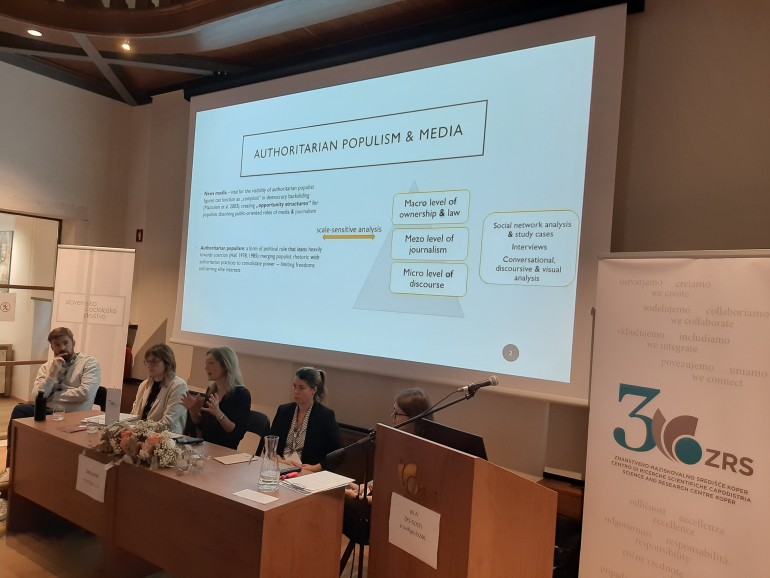
At the annual meeting of the Slovene Sociological Association in Koper (October 17-19), during the roundtable discussion titled “Interchanging Media and Politics: Opportunities for Authoritarian Populism,” with participants Mojca Pajnik, Marlene Radl, Fanni Toth, Marko Ribać, and Tjaša Turnšek, we analyzed the relationship between media and authoritarian populism. Using examples from selected European countries (Austria, Croatia, Hungary, Slovenia, and Turkey), we examined how changes in media ownership structures, ownership concentration, and gendered management dynamics create a fertile environment for the rise and persistence of authoritarian populism.
We also emphasized how populist actors exploit political, economic, and institutional power to deepen polarization in media and journalism, exerting pressure on editors and journalists to promote their own agendas. The discussion also explored how exclusionary and divisive ideologies spread through the media, and how authoritarian populist actors craft and propagate these narratives across various media platforms.
At the meeting, Marko Ribać also presented within the section for Political Sociology and Society with his contribution titled “Populism as a Logic of Articulation and the Transformation of Authoritarian Populism and Illiberalism.”
Our contributions to this meeting were developed within the framework of the POPBACK and AFEMED projects.

